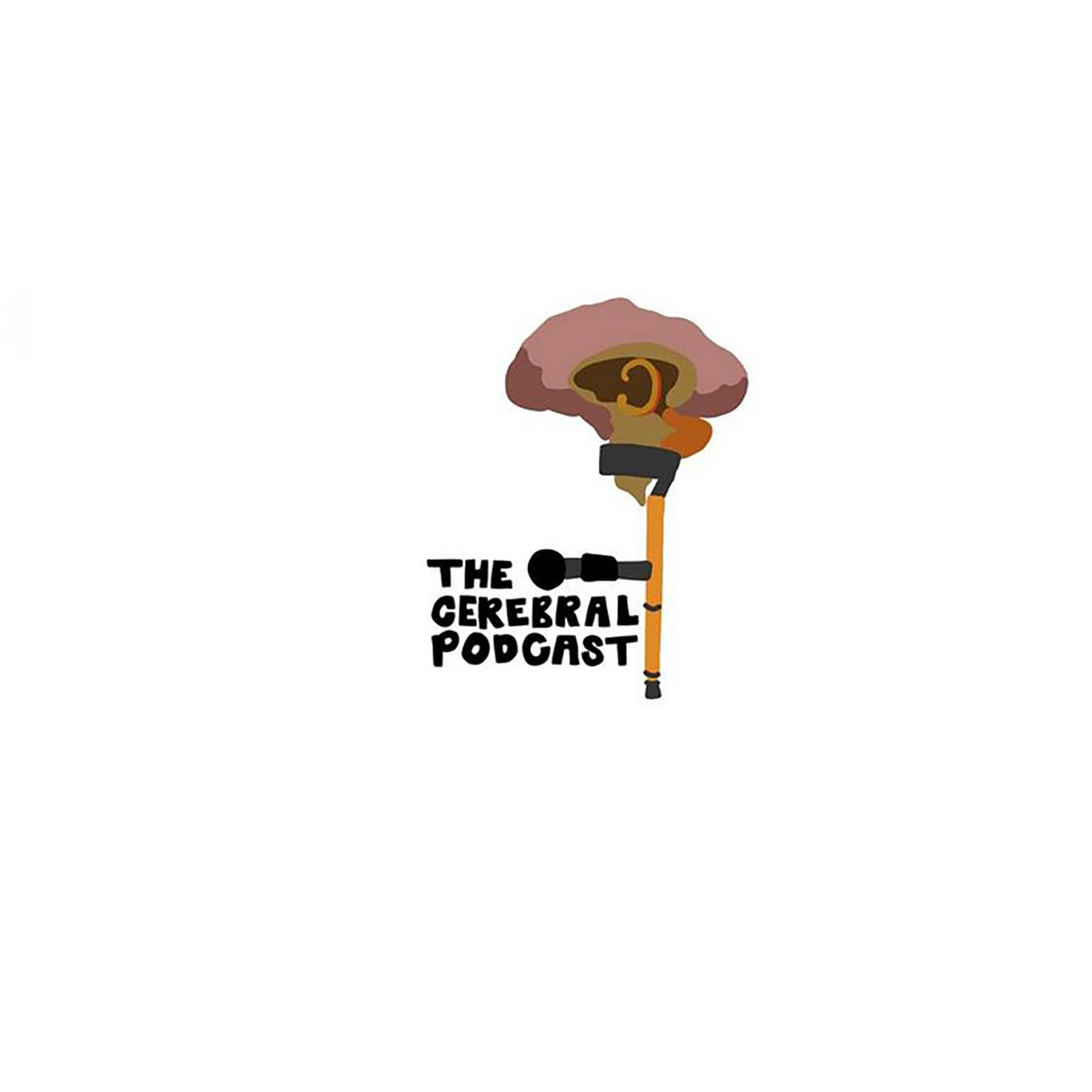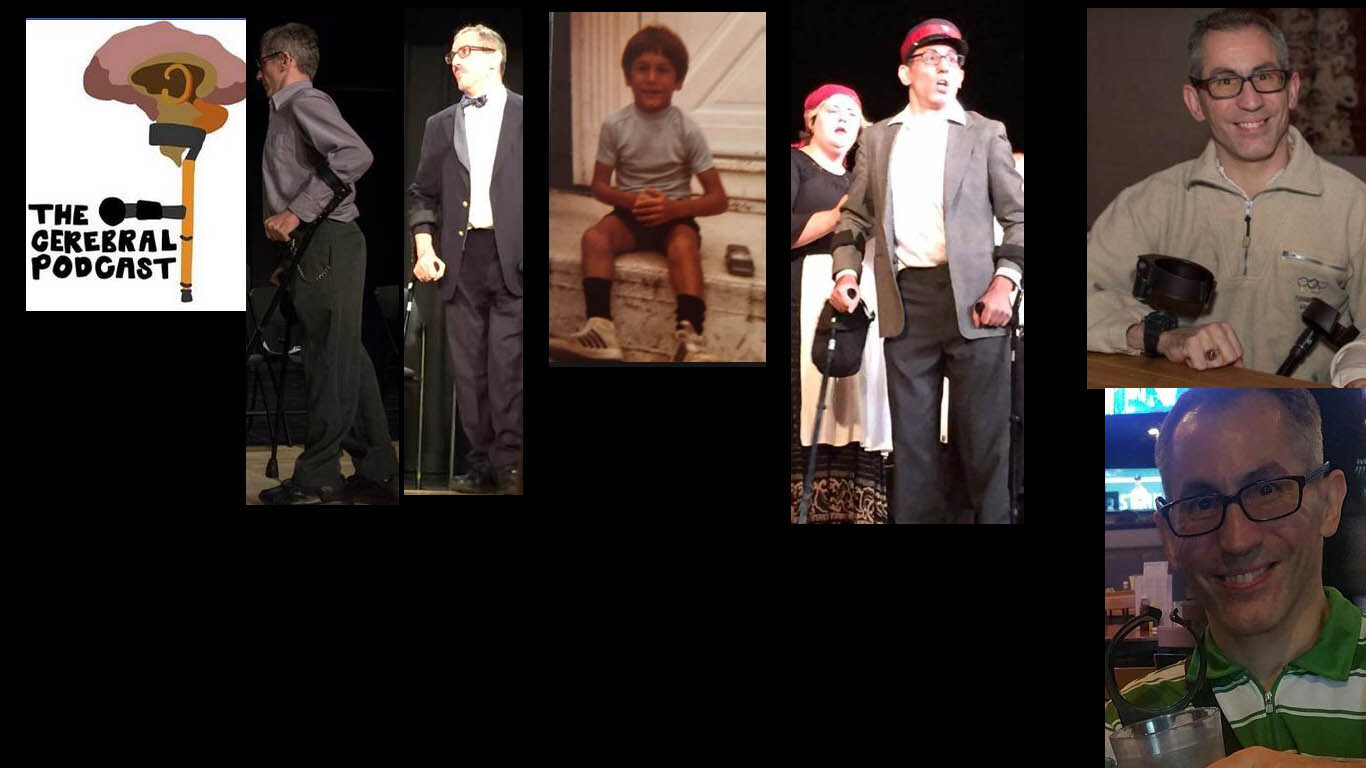
7.3K
Downloads
116
Episodes
This show is dedicated to disability engagement. Rob Targos uses his Cerebral Palsy, crutches and other devices on a rehabilitation pathway to explore different aspects of SEL/EI. Rob Targos also talks about different research, theories, frameworks, methods, models, Rites Of Passage Experiences, etc. from his real life to explore the disability/growth mindset.
This show is dedicated to disability engagement. Rob Targos uses his Cerebral Palsy, crutches and other devices on a rehabilitation pathway to explore different aspects of SEL/EI. Rob Targos also talks about different research, theories, frameworks, methods, models, Rites Of Passage Experiences, etc. from his real life to explore the disability/growth mindset.
Episodes

Friday Sep 11, 2020
Friday Sep 11, 2020
Disclaimer: Rob didn't personally know anyone killed in the attacks, in NYC/VA/PA. In this extended episode, Rob mentions the irony of a popular word used in current events. Rob used a thought of the day from singer/songwriter Jon Bon Jovi.
Then, Rob talked about early exposure to crutch crisis through adapting to situational circumstances. He made a comparison between baseball in the 1980s and not knowing the right answer. He used a seasonal slowdown in the spring of 2001 to move to Brooklyn, NY to further his independence. Next, he talked about the concept of the zone of proximal development by Lev Vygotsky..
Rob started developing new relationships with extended family. He found new connections through finding out about how his uncle lost his job after NAFTA. His uncle later informed him of the attacks on September 11. He and other people saw surreal circumstances. He talked about news reports about Ed Beyea and Abe Zalmonowitz who died together at the World Trade Center. He talked about how the Five for Fighting song Superman became an empowering anthem. Finally, he talked about finding the true value behind a coin collection.
Here is the information on the 9/11 memorial.

Sunday Sep 06, 2020
23. Episode 21: Parents and Practitioners Promoting Participation
Sunday Sep 06, 2020
Sunday Sep 06, 2020
In this week's episode, Rob talked about promoting participation. He talked about the layers of physical, and emotional issues that kids with neurological disabilities, parents and families experience. He conducted a research project through the leadership and empowerment for neurological disabilities at VCU. Practitioners have helped leverage the misunderstandings by facilitating relationships through the principle of servant leadership. He talked about the helper-recipient relationship strategy. Practitioners have helped build confidence and competence within within groups. He also talked about how participation-based physical therapy and how one research article focused on the 10Cs of participation. Rob finished the episode with ROPE, by talking about how the coronavirus has impacted participation on a societal level.

Sunday Aug 30, 2020
Sunday Aug 30, 2020
In this week's episode, Rob first talked about the ICF model from the WHO. He also talked about the hierarchy of impairments and the importance of articulation. He also talked about being exposed to the Americans with Disabilities Act in 1990, and articulating his needs, after visiting Marist College in Poughkeepsie, NY. He also had struggles in HS articulating some of his needs because of the competitive environment.
Rob also talked about Franklin Delano Roosevelt near Marist. Seton Hall University was Rob's first choice, because of their sports team, but changed his mind to attend Marist, after feeling insulted by SHU's conditions of acceptance. He quickly realized how different college life was going to be.
In this week's ROPE, Rob also learned about Maslow's hierarchy of needs in a psychology class. Lastly, he shared how the art class changed his perspective with pointillism. He was able to understand articulation differently. He also created his own interpretation of art and used art and articulate differently in his career. Also please share your thoughts on THE Cerebral Podcast Facebook group.

Sunday Aug 23, 2020
Sunday Aug 23, 2020
The cerebral conversation continues with Rob Targos. Born in the 1970s, he used his cerebral brain against the palsy for years. He often represented threats to himself, his family and his community.
In this episode he uses a joke from Dick Van Dyke from CBS Sunday Morning. He also uses a thought from actor Robert Downey Jr. about playing Iron Man. Rob then talks about taking courses for the LEND program at Virginia Commonwealth University. He learned about the IDEA and the LRE mandate.
He then talks about two different strengths-based approaches to social-emotional learning (SEL). The PYD model uses 5Cs for positive youth development. The second SEL approach is the CASEL model that uses 5 components.
Rob then introduces a new acronym, ROPE as a rite of passage experience. It is based on the literary theory of growth based on character changes and environmental changes. He reflects on his use of training canes in the 1970s and trying to manage himself and his environment.

Sunday Aug 23, 2020
Teaser: The Cerebral Communication Continues
Sunday Aug 23, 2020
Sunday Aug 23, 2020
In this teaser, Rob Targos talks about his cerebral palsy and DIY attitude and even shares the 6T tip from a previous episode. He mentions Miley Cyrus and relates his disability to Lady Gaga. In addition to disability information and disability experience he will talk about emotional intelligence and research in future episodes so listeners can take hold, and engage in future episodes.

Friday May 22, 2020
20. Episode 18: Jawing (Chatting) on Chief Justice John Marshall
Friday May 22, 2020
Friday May 22, 2020
In this episode, Italk about my grade school report about Chief Justice John Marshall. He used the elastic clause hundreds of years before the idea of reasonable accommodation. The elastic clause gave Congress the power to create laws based on the Constitution. I also talk about the XYZ affair and stretching my memory.

Thursday Oct 10, 2019
19. Episode 17: Reflections and Refractions and the Handy Handicap
Thursday Oct 10, 2019
Thursday Oct 10, 2019
In the latest episode, I talked about reflections from pools, swimming and the degrees of difficulty. The crutches become more than just walking devices. Incorporating my crutches into different activities,helped me to manage some of the difficulty. I then talked about physics and I redefined pain and gain.

Friday Sep 13, 2019
18. Episode 16: Baywatch: The Final Wave on the Beach
Friday Sep 13, 2019
Friday Sep 13, 2019
In this week’s episode I talked my final experience with the TV show, Baywatch. A few year’s I ended up with a job working at Nickelodeon. After finding out about a collaboration at between Baywatch and the MTV Beachhouse, I called Baywatch. In 1997, I visited the set of Baywatch and connected with David Hasselhoff and other members of the Baywatch production staff. The next year, I visited the set again and met Executive Producer Douglas Schwartz. I ended up publishing an article with The Disability News Service in 1999.

Thursday Sep 05, 2019
17. Episode 15: Baywatch: The Second Wave: The Ups and Downs of My Spec Script
Thursday Sep 05, 2019
Thursday Sep 05, 2019
This week, I talked about Baywatch and how the show often got overlooked, despite the fact that it dealt with many trauma and disability episodes. The first episode I talked about was "A Matter of Life and Death." I began thinking about different ideas and story lines for Baywatch after watching an interview with one of the executive producers. I then talked about my favorite episode of the series, "Shattered" which involved Mitch getting paralyzed during a rescue and having to go through rehabilitation. I started writing a script, Crippled Perception and wrote to the Baywatch Production Company. After getting a phone call and some encouragement from Baywatch. I also got some information about a Special Olympics episode they happened to be producing, when they received my letter. Through my script I found another process my disability.

Saturday Aug 31, 2019
16. Episode 14: Baywatch, Beauty, Blindness and Other Disabilities: The First Wave
Saturday Aug 31, 2019
Saturday Aug 31, 2019
In this week's episode, I talked about the TV show Baywatch. The majority of the shows episodes are available on Amazon Prime. It first began on NBC after the pilot movie, Panic at Malibu Pier in 1989. The series started as a police drama on the beach. I also talked about some of my personal missteps on the beach in the 1980s. The show came back in syndication in 1991. With music video montages, and a focus more on personal traumas at the beach, the show became an international hit. I talk about a few of my favorite episodes including ones about the percwption of beauty, blindness, a paraplegic character and deaf inclusion. I then tease about the next episode of the podcast where I will talk about some personal involvement with the show.
